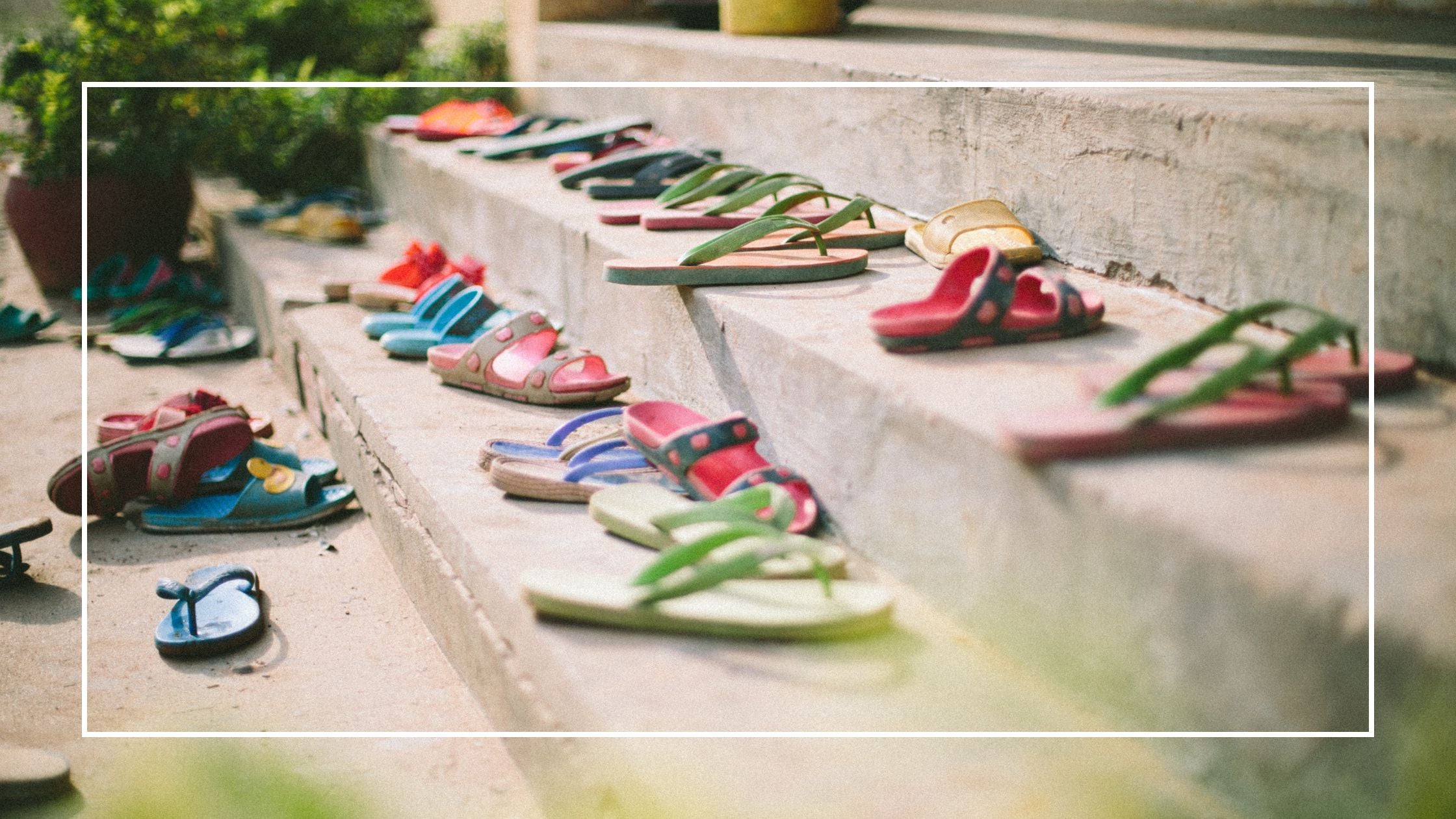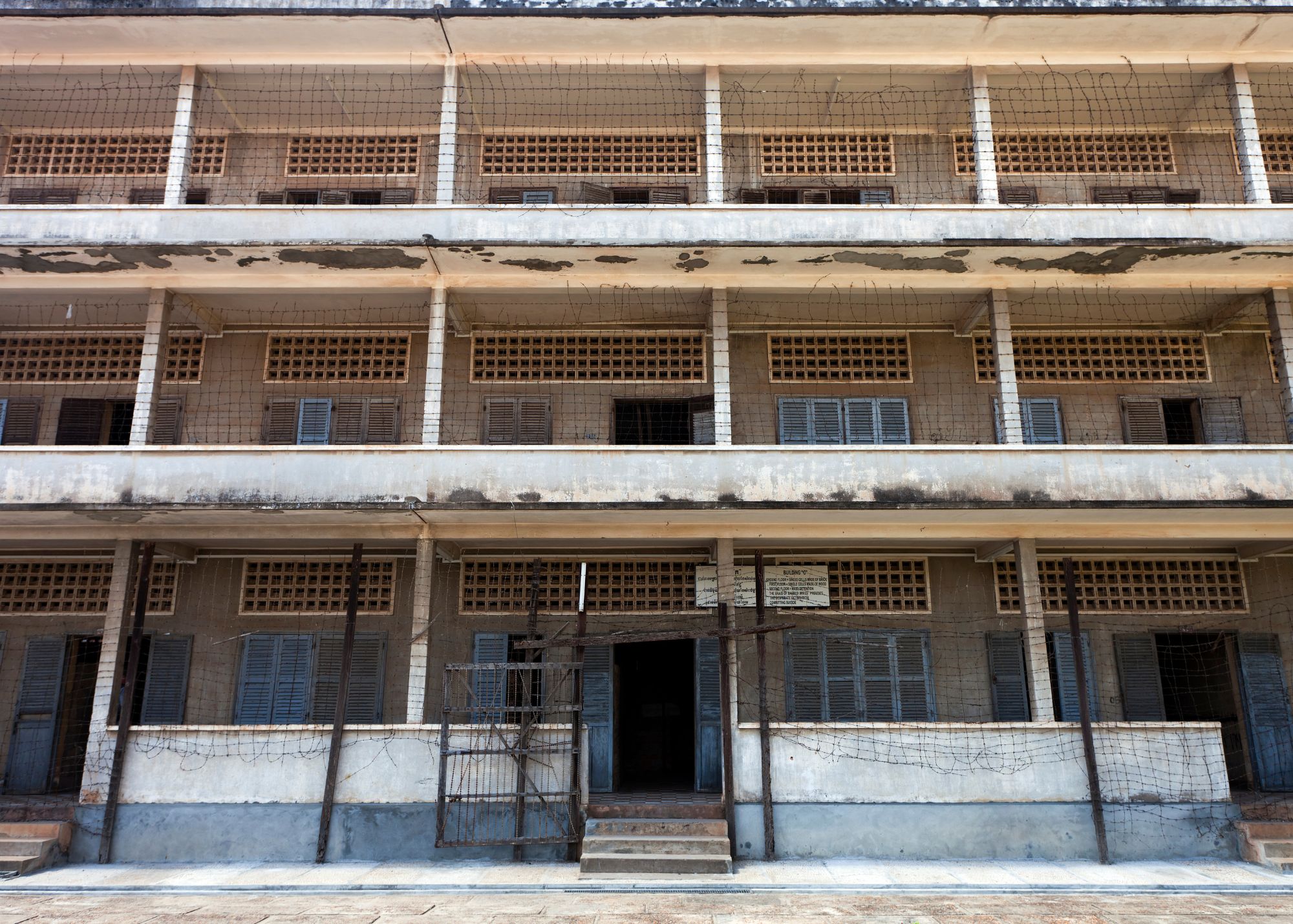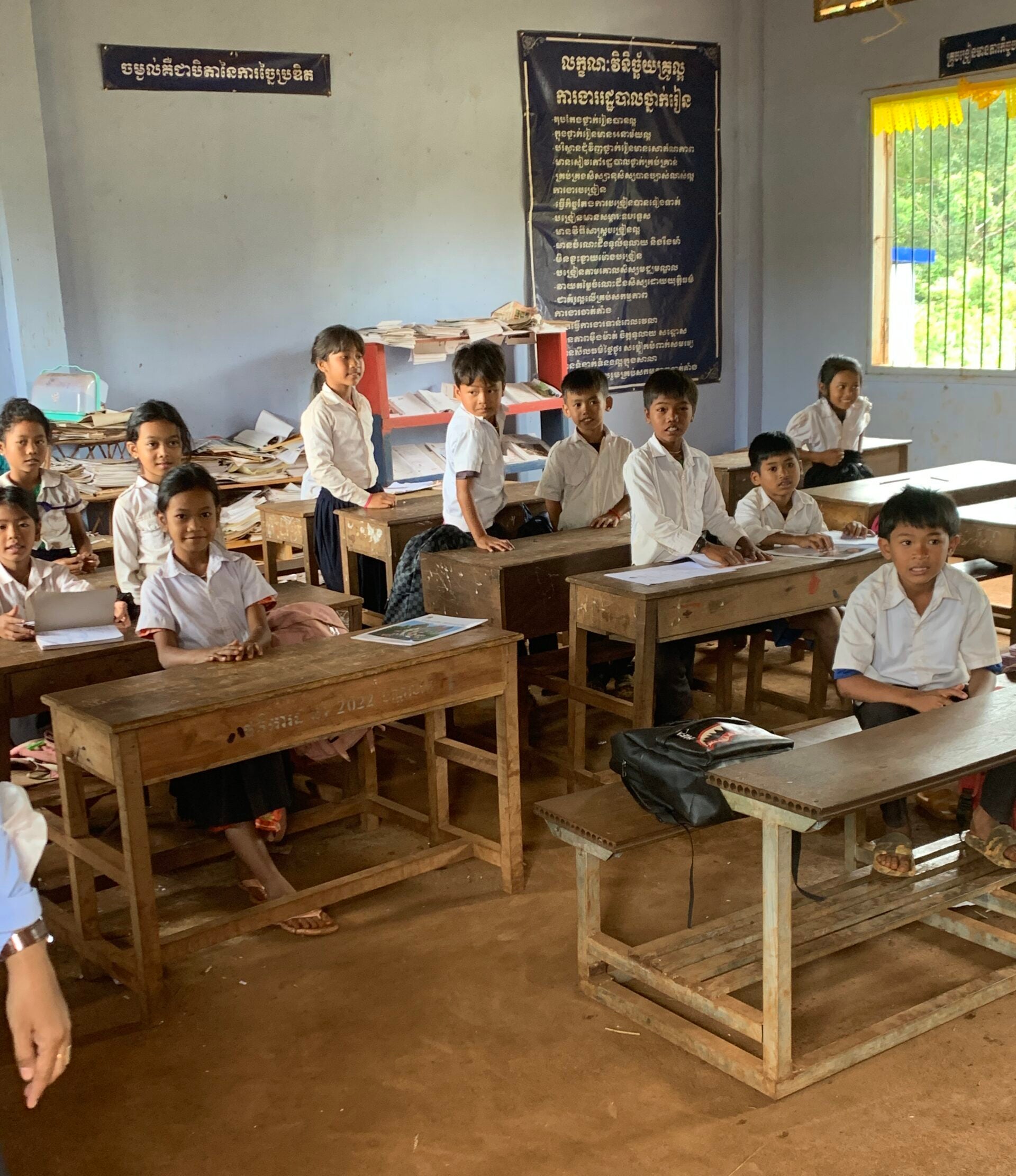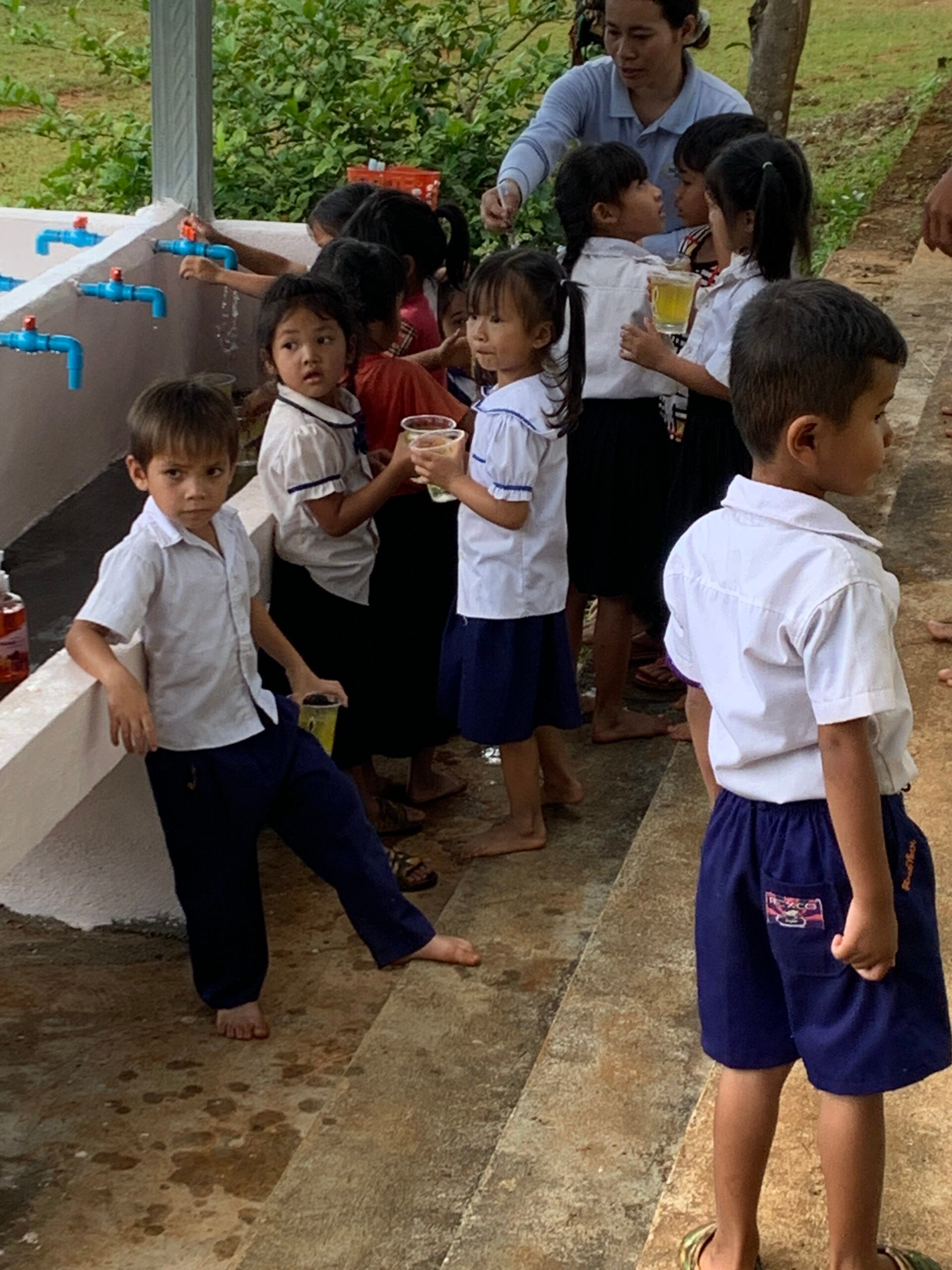
Reflections from Tuol Sleng Genocide Museum
Genocide. A word that wasn’t even part of our English vocabulary until Polish lawyer, Raphael Lemkin combined the Greek root genos (meaning race, people) with the Latin suffix –caedo (meaning the act of killing) in 1944 to give language to “the deliberate and systematic destruction of people because of their ethnicity, nationality, religion or race” (as defined by Britannica).
Visiting Tuol Sleng Genocide Museum
As the tuk tuk pulled up to the curb and we stepped out onto the sidewalk, the gray metal fencing topped with barbed wire was a startling reminder of passages I previously read from the book Survival in the Killing Fields by Haing S. Ngor before my journey to Cambodia. I had a bit of head knowledge about what types of things I might see when I walked through the gate, but seeing and hearing about such evil and the systematic torture and death of fellow human beings rattled me deep in my soul.
We picked up our headphones and audio guides and made our way through the gate. Our team separated and chose to each experience it alone.

As I looked up, the garden just inside the gate commanded my attention. Fourteen graves lined the garden behind a red and gold Cambodia sign. A chill ran down my spine as I considered what the Cambodian people endured through the years of 1975-1979. One quarter of the population of Cambodia was killed during this horrific time.
Building after building tells a story too gruesome to repeat. Faces from photographs reveal haunted eyes, desperately crying out for help. The atrocities that occurred in this beautiful country, to these beautiful people, are unfathomable. The realization that these people were no different from me and my family: mothers, fathers, sisters, brothers, grandfathers, grandmothers, aunts, uncles, cousins. Tears leak from my eyes and roll down my cheeks. A chill runs down my spine. A prayer finds its way from my heart to my Heavenly Father.
I settle myself on a bench in the garden, watch the birds and just sit in the pain for a bit. Presence. Sometimes there are no words for the deep pain and overwhelming grief of our hearts. The realization that no one in Cambodia has been untouched by the genocide they experienced was almost too much to bear, but even in their pain and grief the people are resilient. There was a deep sadness that I sensed (and maybe that was me after seeing what I saw and hearing what I heard) but what bubbled to the top was hope. Hope for tomorrow, hope for their futures, hope that something like this will never, ever happen again.

Igniting Hope
On the far eastern side of Cambodia, is Mondulkiri, the largest province in the country. It is also the least densely populated. The indigenous Bunong, who call Mondulkiri home, are among the most marginalized and impoverished people in the country. Nearly ½ of the population died between the 1960s and the 1990s from decades of civil war followed by displacement by the Khmer Rouge. One quarter of the men and a third of the women did not have the opportunity to receive an education.
Today, the Bunong people continue to be marginalized. Land grabbing is a practice that is destroying native forests which represents deep cultural roots for the Bunong people. This has impacted their livelihood and has caused many men to migrate to find alternative work separating families and leaving women and children even more vulnerable.
World Hope is partnering with the Bunong to provide opportunity, restore dignity, and ignite hope. Working with community leaders, World Hope has identified key areas to come alongside the Bunong people, empowering them to create a better future. Clean water, education, community development, and investing in future leaders are all part of creating sustainable practices that will continue to impact generations to come.
How Can I Partner?
You can make a transformative impact through partnership with World Hope by giving today. Your gift of $55 can provide toothbrushes and toothpaste to about 100 students so they can learn to brush their teeth or provide 100 students with notebooks so they can learn with the tools they need to succeed. A gift of $150 can provide 4 survivors of sexual and gender-based violence counselling sessions or provide 40 children the opportunity to learn about keeping safe from violence. You can also pray – pray for the Bunong people, for World Hope International Cambodia staff and partners, pray that God would heal the land and peoples of Cambodia.

Learn more about some of the programs World Hope International facilitates in Cambodia like the ecotourism camp Jahoo and AK Piped Water.
